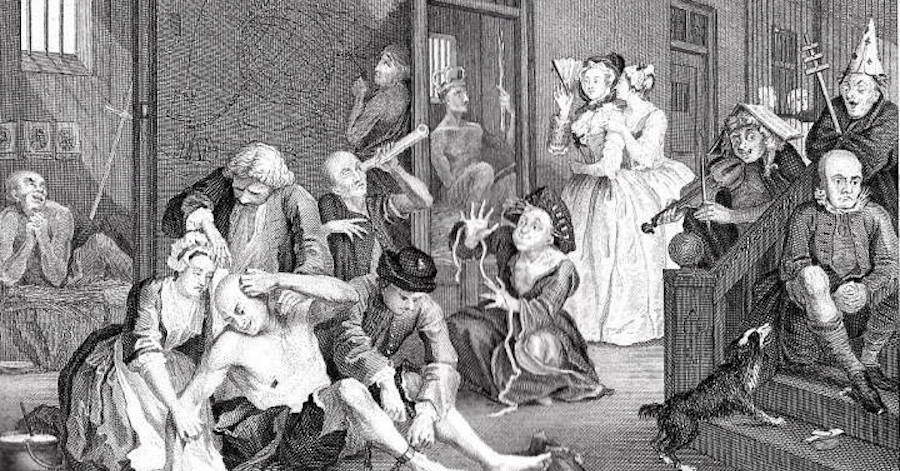It is easy from our armchairs to judge the deaths of two infants and their father in an apparent murder-suicide. The children will never be able to become the grownups all who knew them wished, hoped, dreamed and planned for.
But unless we have walked in the shoes of those who are or have been mentally ill, or those tested by profound stress and duress, compassion, not condemnation, should be our watchword.
Too often, Barbadians are still chained by antiquated shackles in their views on mental health. Too many seem to regard mental illness as those who lived 150 years ago did – as a deficiency equated with some sort of moral failing or degradation of willpower.
Depression is to the common cold as paranoid schizophrenia is to cancer; illnesses that can afflict almost anyone almost anytime, requiring the same compassion, care, treatment and time as any illness. But too many Barbadians don’t see it that way.
And mental health issues do not end with the apparent taking of life, including one’s own. Post-traumatic stress remains to afflict surviving loved ones.
In many respects, the torturous history of mental health care has not evolved from its Victorian origins, when Jenkinsville plantation, converted to a mental asylum in the 1890s, was little different from England’s Bethlem (“Bedlam”) and Broadmoor as original warehouses of human suffering.
Indeed in the 20th century, attempts to treat mental illness in the metropolitan countries have varied from the bizarre to the brutal. Holes were drilled into skulls, lobes of the brain were separated from each other and high voltages of electricity jolted the brains of patients in a bid to curb various behavioural impulses.
Even with advancements in medicines, the well-tempered excesses of psychotic behaviour have left remnants of either blank catatonic stares or violent trembling – only serving to further cement an image of the mentally ill more appropriate for an 18th century William Hogarth caricature.
What has been missing from the ongoing miseducation of the masses on mental health are distinctions of mild neuroses from moderate and severe psychoses. What has been too often absent is an understanding that no one – absolutely no one – is immune to mental illness. One may even be afflicted by the psychiatric equivalent of a sudden heart attack or stroke, where reason and moral conduct are temporarily, and sometimes tragically, crushed by the weight of extreme circumstances.
It is dangerous if not unhelpful to view mental health only through a sensationalist prism as mere ravings and rantings of “lunatics” and the various outward manifestations of inner pain and suffering.
Public mental health ought to be a lens through which we view the current epidemic of homicides in our country, for example. Among young people especially, there is apathy that begets evil, a propensity for violence rather than verbalising to solve problems and incapacity or unwillingness to express the inexpressible and cope with the impossible.
In this modern age, attempts to understand, explain and treat mental illness still meet scorn, derision and accusations of psychobabble. We mock what we do not understand, disbelieve what we do not know. And so real opportunities for helpful, healthy intervention go amiss.
No one can actually observe the origins of every mental health crisis, almost as certainly as no one can divine the moment a heart attack, stroke or tumour will strike.
Mental wellbeing is affected by the stresses and strains of modern domestic life, just as any lifestyle disease – chronic diabetes, hypertension and heart disease – is influenced by the way we live now.
And just as the price of Justice is eternal vigilance, public mental health requires an upfront investment in human wellbeing by the family, school, church, mosque, temple and indeed, the State.
Who knows how many of us may yet be healed if our Psychiatric Hospital is remade in the image of a modern progressive nation? Surely its menacingly Gothic facade ought to replaced with a kinder, gentler visage as befitting any enlightened place of help and healing.
And, let us not forget the role of legal and illicit psychotropic substances – from alcohol to heroin – which often requires as urgent a repair of trauma as would a gunshot wound or stabbing.
Mental health care, then, is clearly complex but vital for the security, prosperity and progress of a healthy nation.
We continue to ignore at our certain peril the holistic, integrated and multidimensional nature of mental health.
Society must work harder to heal itself. For senseless, knee-jerk acts and attitudes of condemning, judging and branding people are as medically useless as taking poison




